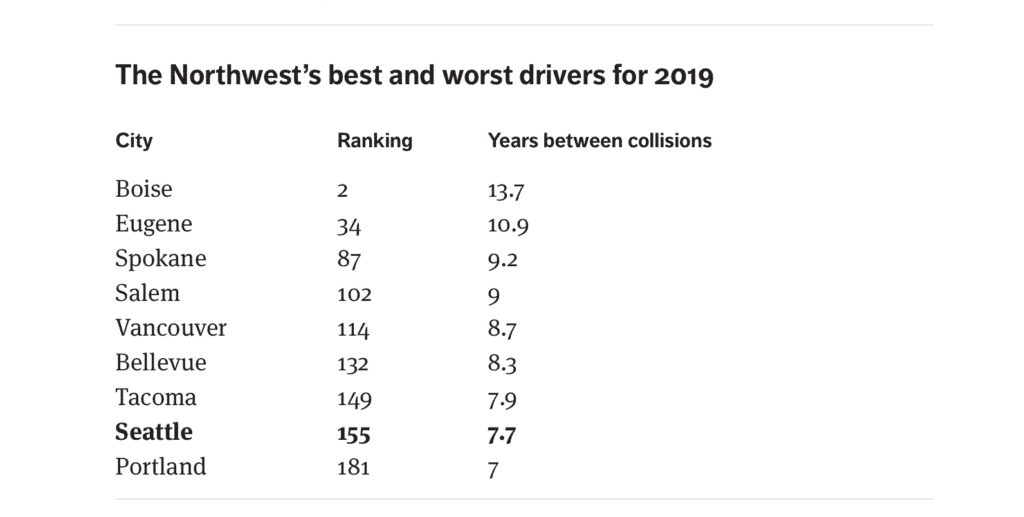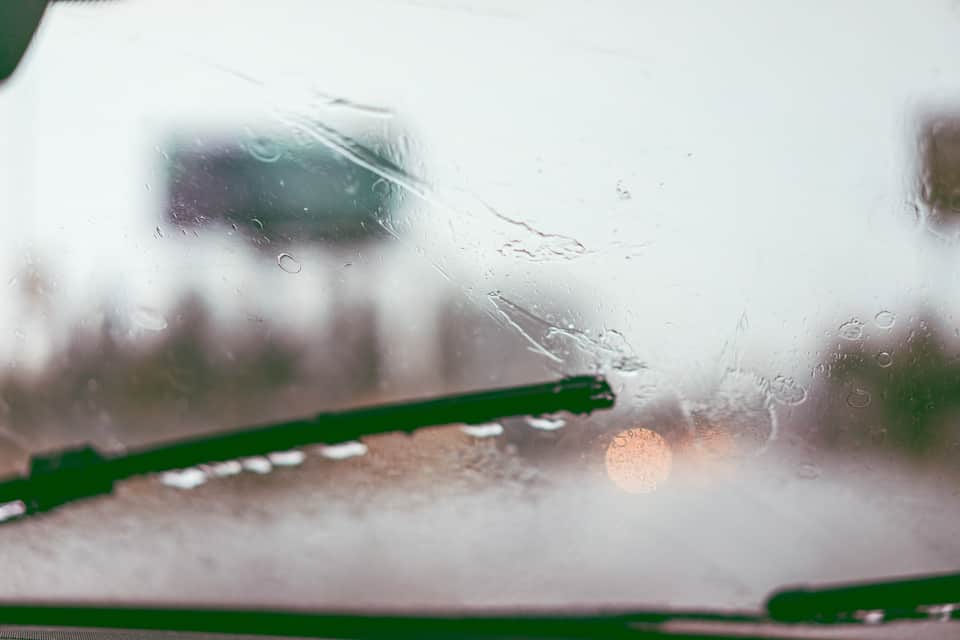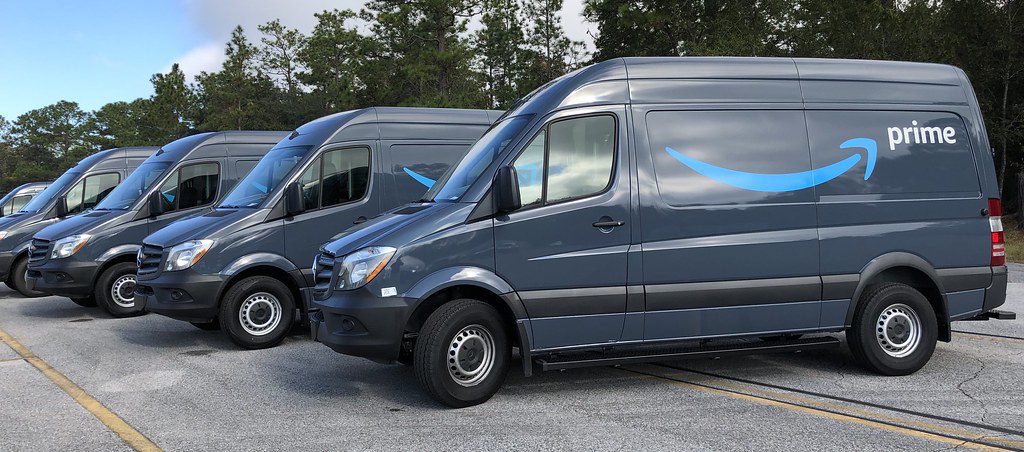Traffic crashes increase during the rainy season. Why are Pacific Northwest drivers bad at driving in the rain?
Nearly every time precipitation hits, whether its a drizzle or a deluge, there seem to be traffic catastrophes all over the place.
Wet roads present different challenges for drivers, especially the first rain after a dry period of weather. But the real problem is that drivers fail to take roadway conditions into consideration.
Slippery roads, puddles and pouring rain take away the margin of error which too many drivers take for granted.

In my many years of driving throughout Washington and Oregon, I’ve witnessed some shockingly bad behind-the-wheel behavior. Just this week, I have seen drivers:
- Very obviously using their smart phone;
- Tailgating within inches of another car’s bumper;
- Driving far too fast for (rainy) conditions;
- Weaving in and out of traffic;
- Running red lights;
- Failing to stop for people walking and on bikes; and, of course,
- Changing lanes without signaling.
These are are bad driving decisions, but it’s harder to get away with bad driving when the roads are wet and slick. Visibility is lower, stopping time increases—and the margin of error for avoiding crashes shrinks.
“We’re bad drivers in general, and in the rain, things get a lot worse quicker,”
said Joe Giammona, chief executive officer of The Driver Training Group and chairman of Global Driving Solutions, to the Seattle Times.
Why it seems like Seattleites are terrible at driving in the rain
Maybe I take bad driving decisions a little personally. In my 33 years of practicing law, I have looked at evidence of too many rainy crash scenes. I have seen what happens when people’s bodies and lives are changed in one instant.
Pacific Northwest drivers: you can do better.
The fact is, if you’re going to drive a car in Washington or Oregon, you must learn how to drive safely in the rain.
- Slow down.
- Leave more room between vehicles.
- Pull over and take a break if you need.
- Put your phone away. (Everyone thinks they are the driver who can avoid a distracted driving crash. At least some of you are wrong.)
A crash has no good outcome. There is no way to reverse it, and there is no way to undo the damage. The only thing you can do is prevent it.
It’s good advice in general, but especially in the rain.

At Coluccio Law, we do not use the word “accident,” because we believe that most car crashes are preventable.
Why you should say “crash”, not “accident.”


